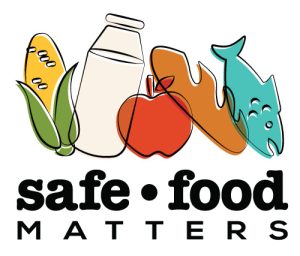Europe to Ban Pre-Harvest Glyphosate on Crops – so should Canada
On November 16, 2023 the European Commission announced it is set to renew glyphosate in Europe for another 10 years, but will ban desiccation – where spraying occurs to kill the crop for easier harvest. Spraying before harvest to kill weeds will also not be allowed for 60 days prior to harvest on farmed crops (1).
Kids, Candy, and Scary Stuff
Some of the fun things about Hallowe’en are the kids, the costumes, and the candy. We have some scary news about the candy.
Health Canada wants to up the levels of pesticides allowed in sugar. Big time. It has proposed to increase allowable levels of two pesticides used on sugar beets – by 200 fold and 10 fold:
Azoxystrobin (AZ) – from 0.5 to 5 ppm (10x)
Fludioxonil (FL) – from 0.02 to 4 ppm (200x)
Why? So Canada’s levels will match the US levels.
You may recall in 2021 there was a “pause” put on maximum residue limits (MRLs) because of proposed …Read More
“Highly Uncertain” Science Used for Pesticide Limits
Pesticide limits for sugar beet roots – the first up for MRL increases after the “pause” – are based on uncertain science
Confidential test data reveals there is “High uncertainty of [the] MRL estimate” for two increases of pesticide maximum residue limits (MRLs) on sugar beet roots (used for sugar products), which were requested by Syngenta and proposed by Health Canada. The proposed MRLs, which are 200 times and 10 times higher than current levels, were calculated using the OECD Calculator. The output page of the calculator flags in red that there is high uncertainty because small data sets were used.
Health …Read More
Preliminary Hearing on Oct 24 2023 over Glyphosate Product Renewal
On October 24, 2023, Safe Food Matters is n Federal Court with other groups in the first step of its “product renewal case” over a glyphosate product. We are seeking documents to show what science, if any, PMRA looked at in its renewal.
Key Scientist Resigns from PMRA’s Scientific Advisory Committee
“Bruce Lanphear” by SFU – Communications & Marketing is licensed under CC BY 2.0.
Dr. Bruce P. Lanphear, MD, MPH, has resigned from the PMRA’s newly created Scientific Advisory Committee (the SAC).
The SAC was created by Health Canada’s Pest Management Regulatory Agency (PMRA) in 2022 as part of its Transformation Agenda, and was touted recently as acting in an “advisory role” to PMRA.
A link to Dr. Lanphear’s resignation letter is below.
Some key points he makes include:
Restrictive Scope
– The terms of reference were inadequate, and too restrictive – more restrictive than those of the Pest Management Advisory Council, which improperly allows industry representatives.
– He worries …Read More
Safe Food Matters Goes Back to Court June 13 with Health Canada on Glyphosate
On June 13, 2023, Safe Food Matters returns to federal court in its ongoing battle with Health Canada over glyphosate, Canada’s most widely used herbicide.
This is the first step in our second lawsuit against Health Canada’s Pest Management Regulatory Agency (PMRA) for re-registering this harmful pesticide. We are seeking documents to show what’s really going on behind closed doors at the PMRA.
Why? Because something’s not right. In February, 2022, the Federal Court of Appeal ordered the PMRA to review our “Notice of Objection” for a second time – and the Court even provided “Guidance” to PMRA on how to address the issues. But PMRA did not follow the Guidance.
More than that, PMRA bent over backward to not address the concerns we raised. PMRA rewrote history. PMRA made up totally new legal tests. PMRA defied the rules of procedural fairness. It is clear PMRA does not want a review panel, even though the law allows for it.
So what’s going on?
SAFE FOOD MATTERS SUES AGAIN ON GLYPHOSATE
November 2, 2022. Safe Food Matters Inc. has launched its second lawsuit against Health Canada over its 2017 re-registration of glyphosate. It claims Health Canada, through the Pest Management Regulatory Agency, acted unreasonably and unfairly when on September 29, 2022 it rejected the group’s objections for the second time.
Safe Food Matters initially sued PMRA in 2019, lost in federal court, then appealed. The appeal was successful and on February 2, 2022, the Federal Court of Appeal directed PMRA to reconsider the objections, and to follow the Guidance of the Court when doing so.
The Court issued the Guidance to avoid the …Read More
It’s Time to Ban Glyphosate!
Glyphosate, the world’s most-used herbicide, is almost impossible to avoid. Glyphosate is in your water, in much of of the food you eat, in the soils growing that food, in forests, rivers and streams, and in wildlife.
The science is clear to us. Glyphosate is harming our health and the environment. Yet pesticide regulators are still “monitoring” the science and refusing to take action.
On September 15, 2022 the courageous film producer, Jennifer Baichwal, filed a citizen’s petition to Parliament to ban glyphosate and to reduce pesticide use. Until January 13, 2023, residents of Canada can take action by signing Petition e-4127. …Read More
Comments on Targeted Review of PCPA
Some types of Foods Affected by Pesticides, Gene-editing
This post provides the detailed comments submitted by Safe Food Matters to the Pest Management Regulatory Agency’s (PMRA’s) consultation on the “Targeted Review” of the Pest Control Products Act (PCPA).
Comments SFM on Dis Dic 2022-01vFinalDownload
By way of background, In Summer, 2021, there was public outcry to proposed increases to “maximum residue limits” of pesticides in food, and this consultation was the result. Discussion Document 2022-01 set out 3 objectives, and asked for answers to questions on each. The list was set out in Annex 3.
We previously wrote about …Read More
Consultation on Targeted Review of Pesticides Act: Real-World Data and Independence
This post is about providing comments on the third objective of the Pest Management Regulatory Agency’s (PMRA’s) consultation on the “Targeted Review” of the Pest Control Products Act (PCPA).In Summer, 2021, there was public outcry to proposed increases to “maximum residue limits” of pesticides in food, and this consultation (set out in Discussion Document 2022-01) is the result. The extended deadline for comments is June 30, 2022.Below at the heading “Objective 3 – Increased Use of Real-word Data and Independent Advice/Evidence” are our comments on the third and last objective. Our thoughts on the first and second objectives were provided …Read More





